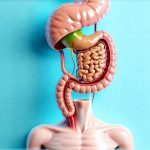Morning nausea – that unwelcome guest that greets some people as soon as they wake up – can range from mildly unpleasant to truly debilitating. It’s often associated with pregnancy (“morning sickness” isn’t always limited to mornings, and it impacts many beyond the first trimester), but numerous factors outside of gestation can trigger this distressing symptom. Dehydration, stress, anxiety, rapid changes in blood sugar, certain medications, even sleep position – all these can contribute to feeling queasy before your day has properly begun. Ignoring morning nausea isn’t an option; it disrupts routines, diminishes quality of life, and can impact productivity. However, many individuals unknowingly have a powerful tool at their disposal: strategic snacking.
The misconception often lies in believing that an empty stomach is the culprit. While true for some, more frequently, fluctuations in blood sugar overnight or upon waking are to blame. Our bodies undergo significant metabolic shifts during sleep. Blood sugar levels naturally drop as we fast while asleep. When these levels plummet too low – or rise too quickly when you finally eat – it can trigger the vagus nerve, a key player in digestive control and nausea response. The goal isn’t necessarily more food, but rather a consistent, gentle approach to stabilizing blood sugar throughout the night and immediately upon waking. This is where thoughtfully chosen small snacks come into play as preventative measures, offering a subtle yet effective way to mitigate these fluctuations. Understanding how small meals can make a difference can be very helpful.
Understanding the Blood Sugar-Nausea Connection
The link between blood sugar and nausea isn’t complicated, but it’s often misunderstood. When your blood glucose levels drop significantly (hypoglycemia), your body perceives this as a stressor. It releases hormones like cortisol and adrenaline to mobilize stored glucose – essentially putting you into a mild “fight or flight” state. This hormonal surge can stimulate the vomiting center in the brain, leading to nausea. Conversely, rapidly increasing blood sugar – from consuming something very sugary first thing in the morning – causes a similar spike and subsequent crash, resulting in identical symptoms. Think of it like a seesaw: too far down or too far up, and you’ll feel unbalanced. A steady state is what we’re aiming for.
This effect is amplified if you already have underlying sensitivities or conditions. Individuals with diabetes, reactive hypoglycemia, or even just those prone to anxiety often experience more pronounced blood sugar swings and are therefore more susceptible to morning nausea. Even seemingly minor dietary choices before bed can impact overnight glucose levels, making a pre-sleep snack potentially beneficial. The key is to choose snacks that offer slow-releasing carbohydrates combined with a small amount of protein or healthy fats – this combination provides sustained energy release without the dramatic peaks and valleys. If you suspect underlying issues, digestive enzyme tests can explain food issues.
The timing of your last meal also matters significantly. Eating a large, heavy meal close to bedtime can disrupt sleep quality and exacerbate blood sugar fluctuations during the night, increasing the likelihood of morning nausea. A light, easily digestible snack is preferable. Remember that everyone’s body responds differently, so finding what works best for you through careful observation and experimentation is essential. How mild symptoms can lead to early-stage testing may be useful if you are concerned.
The Role of Hydration in Preventing Nausea
Dehydration is a frequent contributor to nausea, both generally and specifically in the mornings. During sleep, we lose fluids through respiration and perspiration. Waking up even mildly dehydrated can trigger a cascade of symptoms including headache, fatigue, and – crucially – nausea. This isn’t just about drinking water; it’s also about how you hydrate. Gulping down large amounts of water immediately upon waking can sometimes worsen the feeling, particularly if your stomach is already sensitive.
- Sip small amounts of water throughout the night. Keeping a glass of water by your bedside encourages regular hydration.
- Consider electrolyte-rich fluids. While plain water is essential, adding electrolytes (sodium, potassium, magnesium) helps maintain fluid balance and can be particularly helpful if you’ve been sweating during sleep or have recently experienced vomiting. Coconut water, diluted fruit juice, or an electrolyte solution are all good options.
- Avoid sugary drinks first thing in the morning. These contribute to blood sugar spikes and won’t provide lasting hydration.
Furthermore, certain foods can actually help with hydration. Fruits like watermelon and oranges contain high levels of water and electrolytes. Incorporating these into your evening snack or enjoying a small portion upon waking can be incredibly beneficial. The goal is consistent, gentle rehydration rather than overwhelming your system with large volumes of liquid at once. Understanding how full-body scans can give digestive insights could help rule out other issues.
Pre-Sleep Snack Strategies for Stable Blood Sugar
Choosing the right pre-sleep snack isn’t about deprivation; it’s about smart choices. Avoid sugary cereals, cookies, or anything that will cause a rapid blood sugar spike. Instead, focus on combinations that offer sustained energy release. Here are some examples:
- A small handful of almonds with a few whole-grain crackers.
- A tablespoon of peanut butter on a slice of whole-wheat toast.
- A small banana with a teaspoon of almond butter.
- Plain Greek yogurt with a sprinkle of berries.
The portion size is crucial – we’re talking about snacks, not meals. Overeating before bed will disrupt sleep and potentially worsen nausea. Aim for something around 150-200 calories. Consider your individual tolerances; some people can tolerate more protein or fat than others. Experiment to find what works best for you without causing digestive discomfort. Tests that reveal how well your small intestine is working could identify underlying issues.
Beyond the food itself, when you eat matters too. Ideally, consume your pre-sleep snack about an hour before bedtime, giving your body time to begin digesting it and stabilizing blood sugar levels. If you wake up during the night due to nausea, keeping a similar small snack readily available can help quickly stabilize your blood sugar and alleviate symptoms.
Morning Snack Options for Immediate Relief
If despite your best efforts, you still experience morning nausea upon waking, a carefully chosen snack can often provide immediate relief. The same principles apply: focus on slow-releasing carbohydrates combined with protein or healthy fats. However, the emphasis shifts to gentle digestion and minimizing stimulation of the vagus nerve.
- Dry toast or crackers are classic choices because they’re bland and easy to digest.
- A small portion of plain oatmeal (without added sugar) can be soothing.
- Ginger is known for its anti-nausea properties; ginger tea, ginger chews, or even a tiny piece of crystallized ginger can be helpful. Be mindful if you have any digestive issues that might be exacerbated by ginger.
- Bananas are easy to digest and provide potassium, which can be depleted during episodes of nausea.
Avoid strong smells and flavors when choosing your morning snack; these can sometimes exacerbate nausea. Sip water slowly alongside the snack to stay hydrated. The goal is to gently raise blood sugar levels without overwhelming your system. If symptoms persist or worsen despite trying these strategies, it’s important to consult with a healthcare professional to rule out any underlying medical conditions. These snacks are not a substitute for medical advice. Looking at gut test results can impact sleep quality if nausea is ongoing.
It’s vital to remember that managing morning nausea often requires a multifaceted approach. While strategic snacking is an incredibly effective tool, it works best when combined with other healthy habits like adequate sleep, stress management techniques, and proper hydration. Paying attention to your body’s signals and making small, sustainable changes can significantly improve your quality of life and help you start each day feeling refreshed and energized. It might also be helpful to understand how mild gut inflammation can be detected early.


















